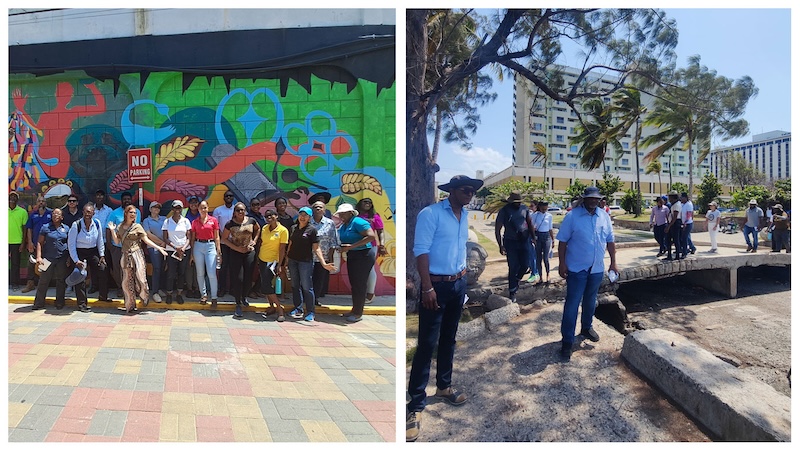As the capital city and the political center of Jamaica, Kingston is the country’s hub of economic activity and development and is the largest English-speaking city in the Caribbean. The city’s urban core and historic downtown trace the waterfront of one of the world’s largest natural harbors, making it a successful transshipment port in the region. Yet, it faces important challenges related to urban livability, climate risks, and competitiveness. Kingston is highly exposed to disasters and climatic shocks, which are expected to intensify posing macroeconomic and development risks. Moreover, within the city, increased annual temperatures are putting a greater number of people at risk of extreme heat.
The World Bank and the Global Facility for Disaster Reduction and Recovery (GFDRR) are supporting the government of Jamaica to revitalize the waterfront area of downtown Kingston and improve urban quality of life through the Kingston Waterfront Improvement Project (KIWI). The KIWI project places an emphasis on Nature-Based Solutions (NBS) to rejuvenate the urban core, while reducing the urban heat island effect and aiming to bring multiple benefits to Kingston’s population including revitalizing the local economy.
GFDRR, with support from the government of Canada and the World Bank Jamaica country office, supported capacity development of local government agencies to understand, identify, and shortlist potential NBS for Kingston. A customized three-day Kingston training course on NBS for climate resilience, led by the GFDRR NBS team, was held with over 45 local government official participants from May 15 to 17, 2024.
This immersive and interactive cross-sectoral course was the first pilot of GFDRR’s newly developed NBS Training Program, which helps World Bank clients understand the benefits and challenges of NBS, and begin to envision and prepare for the planning, design, and implementation of these solutions in their project and policy context. It included a combination of geospatial analysis, site visits, technical training, and applied learning activities. The course focused on a mix of locally relevant NBS topics including urban green, coastal, and pluvial flood risk reduction NBS. The course concluded with an interactive Kingston NBS design session, where cross-sectoral groups collaboratively developed concrete solutions and initial plans for greening and revitalizing Kingston, paving the way for future project design and implementation.
To amplify its impact, the NBS Training Program will be further developed, customized, and rolled out for World Bank clients as a key component in promoting NBS across the globe.

